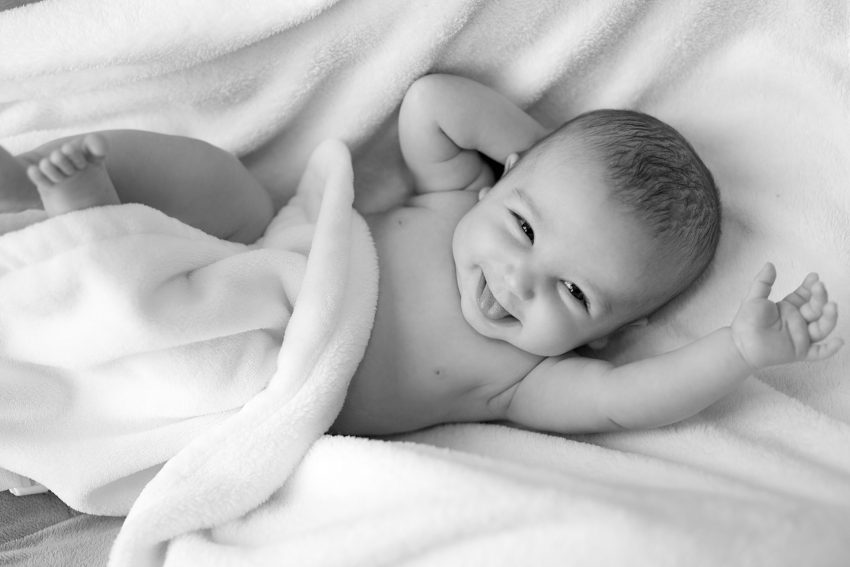Pregnancy is for the expectant mother the top event in the life cycle, a source of a variety of emotions that she will experience for the first time. It is a critical phase in a woman’s life, where balances, responsibilities, physical image, interpersonal relationships, roles change.
The alternation of emotions is due to both the hormonal changes that take place in the pregnant woman’s body and the various emotions caused by the prospect of having a child. Every expectant mother has concerns about how her pregnancy will develop, whether she is ready to raise a child properly, but also about the changes that will happen in her own life after the birth of the child. All these changes, at various levels (social, mental, physical) and in such a short time, lead her to a more fragile emotional balance and the expectant mother discovers herself, very sensitive and easy to emotion and misunderstandings.
Joy, dreams, expectations, hopes, gratitude, stress, anxiety, confusion, despair. Often the new mother asks a series of questions about herself and her pregnancy. Am I suitable to be a mother? Can I respond to this? Is pregnancy equally desirable for both parents? Will my partner support me?
What is emotional safety during pregnancy?
Emotional safety in pregnancy is when the expectant mother feels appreciated, happy, and satisfied, still valued even now as a pregnant woman that her life changes. It is possible for her to trust and to be trusted people from the environment she is living in.
Research over a hundred years has shown that the role of stimuli received by the fetus, well protected in the arms of the mother’s uterus, is enormous. Prenatal psychology reveals to us that intrauterine experience has a decisive impact on his life as an adult.
The baby in the womb is the recipient of the thoughts, feelings, perceptions of his mother, and even what is happening outside. He is influenced and structured by the stimuli that his mom receives, her habits, her preferences.
If we ask ourselves when the social and mental raise of a child begins, the most correct answer is from the moment of conception. So emotional safety starts from the mother’s womb, the time of conception.
Why is this prenatal period so important for the mother to determine the health, intelligence, mental, and social sobriety of this person as a baby but also as an adult?
The mother’s healthy diet and her inner peace and joy play an important role. According to Dr. Michel Odent, this happens because other hormones are secreted in her body when she is happy, optimistic and relaxed, (oxytocin-the love hormone – and endorphins) and others when you feel unhappy, pessimistic, stressed (adrenaline and Catecholamine hormones).
Estrogen and progesterone as hormones affect almost everything as it increases blood flow to the skin (redness on the skin) and together with progesterone, it emphasizes all the emotions that a pregnant woman feels making her emotionally more vulnerable, more stressed and more intense.
The hormone that causes stress penetrates the placenta. When we feel stress, increased levels of cortisol are secreted into the blood of the pregnant woman, through which the amniotic fluid penetrates. The higher the levels of this hormone, the lower the child’s mental index. Dr. Gaham, after studying, states that infants are aware of parental disagreements and intense discussions affect the way their brains manage their stress and emotions.
Pregnancy and motherhood are perfectly normal in a woman’s life, but no woman is ready for it beforehand and does not know what will follow. But every woman in her own unique way prepares herself emotionally and gives her best.
The fetus experiences everything that the mother experiences, even her feelings or preferences, so it is very important for the expectant mother to remain calm, to feel good and happy at this time because her thoughts and feelings for the baby in the future will become “the reality” for her baby.
Of course, calmness and serenity, as well as a sense of security and confidence, continue to exist in an even more sacred moment of birth. The way we get born, the type, and the quality of our birth in the future will positively develop us emotionally as human beings.
Dick-Read believed that “every woman in childbirth should be able to feel the personal triumph of motherhood.” Leboyer spoke about childbirth without violence. He taught us that the newborn is a personality capable of feeling, hearing, smelling, perceiving, and needs warmth, love, tender care. He removed from the birth the violent techniques, the unnecessary manipulations and imposed the calm, the patience, the peace.
How does emotional safety affect the fetus?
The fetus as it is in the womb is created not only by the blood and hormones but also by the actions of his mother, which are created by her thoughts, emotions, and experiences. Her sadness or anxiety disturbs the proper creation of his organs, while joy, serenity, love, and optimism provide the right foundation for the formation not only of the emotional brain but also of his nervous and immune system.
At the same time, the thoughts, ideas, mentality, and experiences of the expectant mother are information. According to Tomatis, every cell is an ear. The developing cells of the fetus, have the emotions and the psyche of the fetus recorded in their cellular memory. Those cells planning their postnatal life as a child but also as an adult. Respectively, his mother’s pessimistic thoughts, anxiety, and possible melancholy create a nervous and melancholy psychosynthesis, making him antisocial and pessimistic.
Mothers who did not feel any connection with their baby had children with co-morbidity problems and low self-esteem. The fetus feels that its mother is rejecting it. Some women stated that during the nine months, they did not touch their belly. From the above, we conclude that the mother’s mood and emotions significantly affect her baby’s temperament.
Correspondingly, babies born from depressed mothers will experience at some point the same depression during their adulthood. What the fetus is experiencing while in the womb of a depressed mom is sadness and despair. As for the feelings corresponding to her own mother, she does not let herself to enjoy her pregnancy as it also affects her ability to take care not only of herself but also of her baby
The mother transmits to the fetus information about the situation in the external environment, depending on how she perceives it. The baby, therefore, is structured in the abdomen and establishes its physical, emotional, mental, spiritual physiognomy. This practically means that a happy mom means a happy baby. Anxious mom, scared baby. When the mother comes in contact with the fetus, it comes to life with appetite and emotional balance. When the mother gives the baby a variety of stimuli (mainly in the third trimester), she develops mentally.
What can I do to have a smoother and happier pregnancy and labor?
There are some things you can do to ensure a calmer and happier and psychologically healthy pregnancy and better birth. Remember that you and the life that comes into the world deserve it.
- Set some time each day to relax. Music helps you and your baby a lot. Yoga relaxes soul and body, and there are many sections for pregnant women to use. Visualize ideal situations and feel free yourself in images with your baby. Even some simple deep breaths can relieve you and calm you down.
- Speak to your baby, sing to him, caress your belly. Contact with your baby lovingly and let this contact accompany you every moment of the day.
- If there are issues that weigh on you and you think they will pass on your baby, talk to him. He feels you and understands you. He loves you. Maybe a kick is an answer you expect from your little one that he understands you.
- Prepare for childbirth. The information about the physiology and the process of birth, physical, and psychological preparation. Set aside the fears of delivery, calm down, and prepare for that moment.
- You have confidence in your body; it has strengths and abilities that you literally can’t imagine. It carries within its primordial knowledge and wisdom. During delivery, no matter how much you fear that you will feel pain, your body secretes a natural analgesic, endorphins.
- Trust your instinct. Nature knows better and will help you complete your task successfully.
- Your partner’s support is vital. Explain that it will make you feel better, and it will also have a beneficial effect on your baby. Throughout pregnancy, childbirth, and the difficult period for many women, partner support can be a catalyst for many things.
- If you are experiencing situations that create negative thoughts and feelings, seek for help, even from a specialist.
- Enjoy your pregnancy. It is the most precious gift you have ever received. And you have made the most precious gift in life, life itself.
During nine months, in the mother’s womb, the roots of every human created Physically and mentally. This growing organism needs continuous physical, mental and spiritual experiences and above all peace, acceptance, and love to grow fully!


